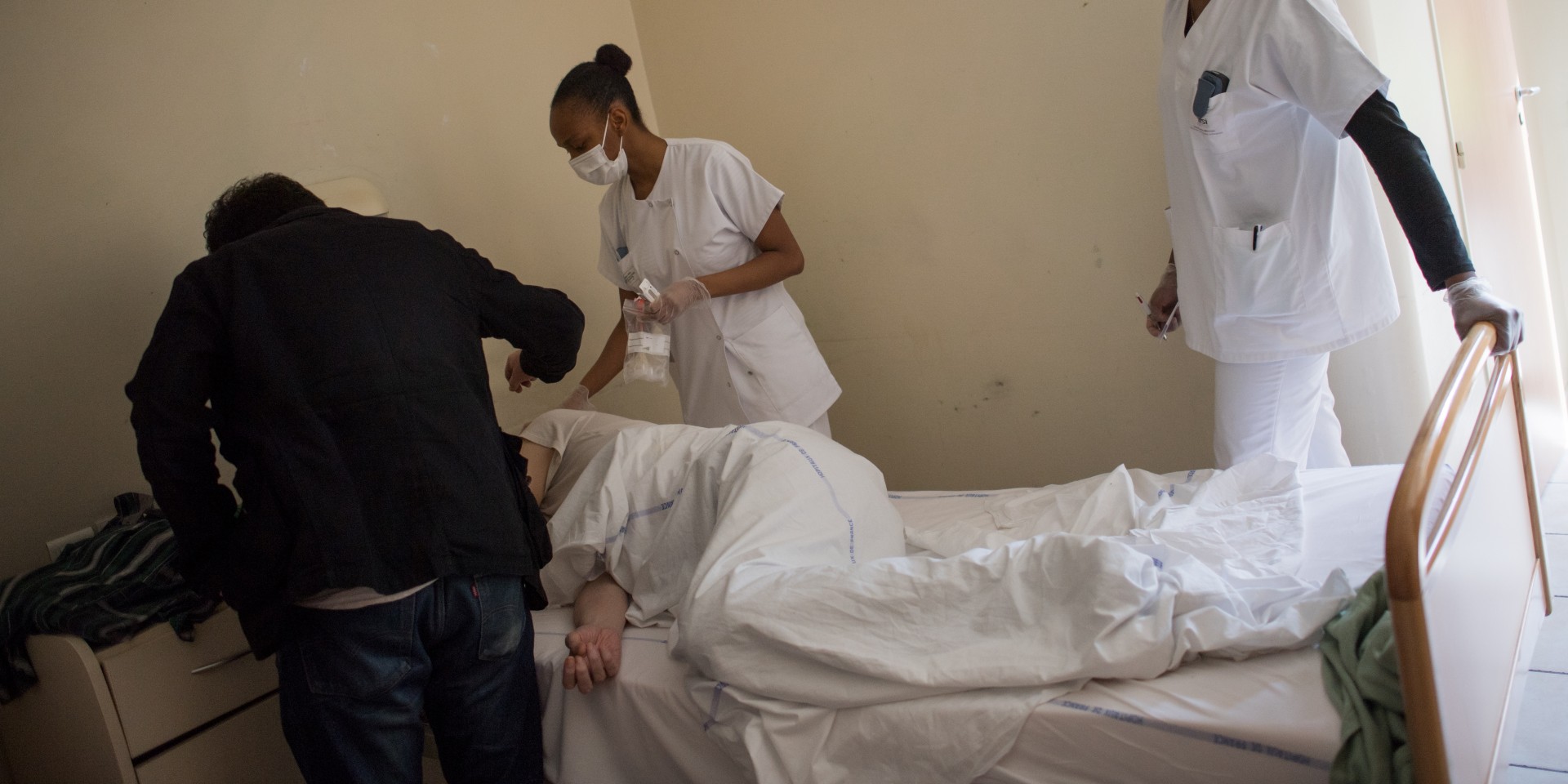People with mental disabilities were not particularly highlighted during the health crisis.
But the staff of the establishments that host them would like solutions to be put in place to help them live better with the Covid, which is very difficult today.
REPORTAGE
People with mental disabilities (depression, schizophrenia, bipolar ...) were left out during the coronavirus crisis, say carers.
The people who work in the medico-social centers that welcome them have all the difficulties in the world to live with the Covid-19.
Example in the center of the John Bost Foundation in Menucourt, in the Val d'Oise, where Europe 1 visited.
>> Find Europe morning weekend in podcast and in replay here
"Isolation can increase their troubles"
Inside this 19th century castle in the middle of a large park, there are 50 of them and they seem a little lost with their mask, a piece of fabric that makes their daily life heavier and revives the feeling of confinement they have known in the psychiatric hospital.
When one of them has symptoms, it is impossible to be tested quickly: each time there are days of waiting, isolated in their room.
An untenable situation for Hélène Antonini Castera, director of the establishment: "Our residents, because of their disorders, can refuse their isolation. And this can increase their anxiety disorders. For them, it is a totally unbearable additional suffering. . "
CORONAVIRUS ESSENTIALS
> "I wanted to vomit": the suffering of these masked women forced to give birth
> When are we in contact?
And other questions that we ask ourselves every day
> Coronavirus: from what age should you have your child tested?
> Coronavirus: the 5 mistakes not to make with your mask
> Does wearing a mask promote bad breath?
Tests directly in establishments
The risk is in addition to letting the virus enter the center.
"It would seem more logical that in a collective establishment we could send a team to test," claims Etienne Pot, doctor at the John Bost Foundation, for whom it is necessary that mobile brigades come on site to test all residents.
"Particularly for these audiences who are fragile and who need more support than others. We cannot ask people with disabilities to wait six hours in front of a biology laboratory. It is not understandable. . "
So far, each time a case has arisen, they have had to make dozens of calls to find a laboratory or a hospital ready to welcome these vulnerable people.

